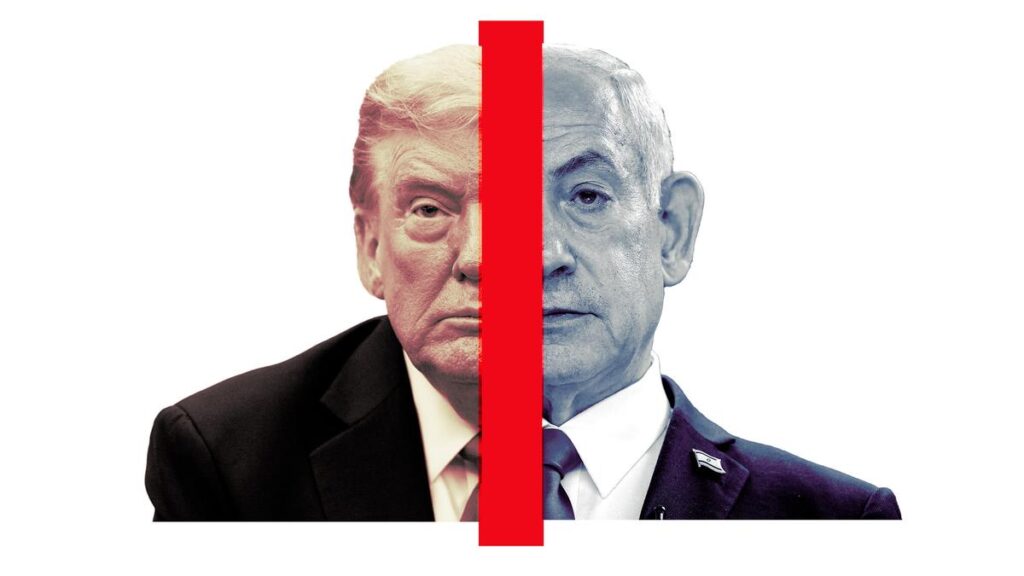
A recent airstrike by Israel on a residential area in Doha, Qatar, has set off a chain of diplomatic events leading to a new peace proposal aimed at ending the ongoing conflict in Gaza. On September 9, 2023, Israeli jets targeted a meeting where Hamas representatives were reportedly discussing a ceasefire. This aggressive action, described by some officials as “negotiation by bombing the negotiators,” provoked outrage among regional leaders and raised tensions significantly.
Despite the initial backlash, President Donald Trump and Israeli Prime Minister Benjamin Netanyahu announced their support for a peace framework on September 29, 2023, during a joint appearance at the White House. Trump characterized the day as “a big, big day, a beautiful day, potentially one of the great days ever in civilization.” Netanyahu, while more measured, stated that the proposal aligned with Israel’s war objectives.
The Israeli strike did not achieve its intended targets, which included key Hamas figures, but it ignited a fierce reaction from the U.S. administration. Trump’s advisers began pressuring Netanyahu to consider a ceasefire plan after months of allowing Israel to continue its military operations against Hamas, even as civilian casualties in Gaza rose sharply.
The situation took a positive turn when, following the peace proposal, Hamas indicated its willingness to release all Israeli hostages and the bodies of deceased Israeli soldiers. However, the group’s response did not address a critical U.S. demand for disarmament, leaving significant questions about the proposal’s viability.
Diplomatic Maneuvering and Regional Reactions
The week following the strike saw intensive diplomatic efforts, with key figures like Jared Kushner, Trump’s son-in-law and former Middle East envoy, re-engaging in negotiations. Kushner, alongside other U.S. officials, worked on a post-war plan for Gaza, which had already been in development prior to the strike.
On September 15, 2023, Qatar hosted an emergency summit of Arab and Muslim nations, where leaders condemned the Israeli attack and discussed their demands for the peace plan. The Qatari government, a long-standing mediator in the conflict, expressed its frustration over Israel’s actions, viewing them as undermining its position as a negotiator.
As diplomatic channels reopened, Qatar presented a list of demands to U.S. officials that included calls for an end to Israeli military operations and guarantees against future strikes on Qatari soil. During high-level meetings at the UN General Assembly on September 20, 2023, Qatari Prime Minister Sheikh Mohammed bin Abdulrahman Al Thani conveyed these demands to Trump and his team.
Trump emphasized the need for a comprehensive “end of war plan,” encompassing not just a ceasefire but a lasting resolution to the conflict. By September 23, 2023, as the U.N. General Assembly convened, Trump and Kushner outlined the key components of this proposal to representatives from various Arab nations, aiming to unify support for the plan.
Challenges Ahead and Netanyahu’s Apology
Despite the momentum, challenges remained. Netanyahu’s skepticism regarding the proposal was evident in the negotiations, where he sought to modify the text in Israel’s favor. The discussions included extensive bargaining over the language of the agreement, particularly concerning Israel’s potential withdrawal from Gaza.
On September 29, 2023, prior to their public announcement of the peace plan, Netanyahu was compelled to issue an apology to Qatar for the September 9 strike—an act Trump insisted was necessary. This moment of contrition, captured in a photograph with Trump, marked a significant shift in the dynamics between Israel and its Arab neighbors.
The broader implications of the peace proposal remain uncertain. While the plan has garnered initial support, dissent persists among some nations, particularly regarding the specifics of disarmament and the future governance of Gaza. For instance, Pakistan’s foreign minister publicly criticized the plan, indicating that certain key areas were not adequately addressed.
As the situation unfolds, the international community watches closely to see if this renewed push for peace will yield a sustainable resolution to the conflict that has persisted since the surprise attack by Hamas on October 7, 2023. The coming weeks will be crucial in determining whether the diplomatic efforts can translate into a lasting ceasefire and a pathway toward stability in the region.






